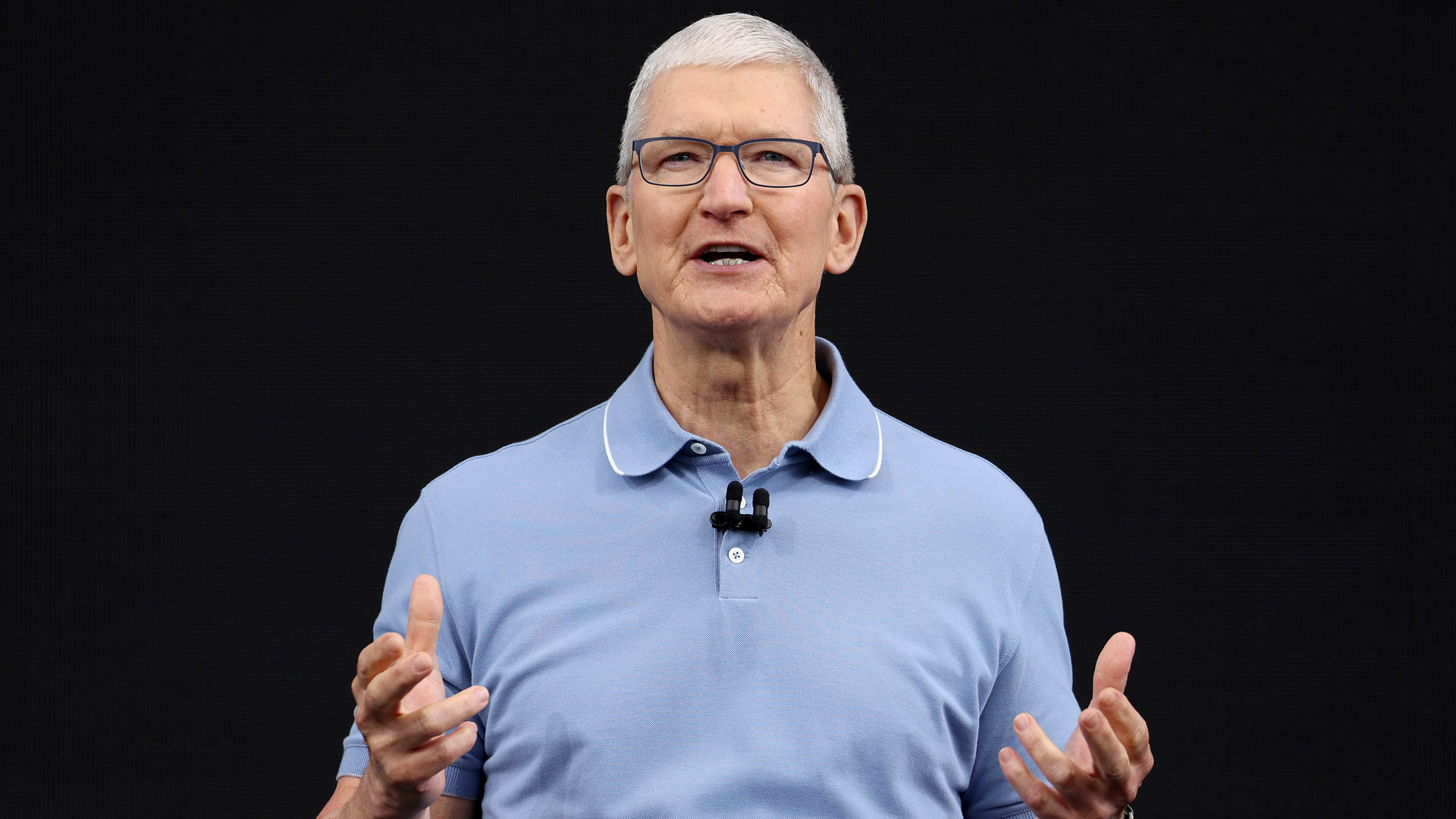Apple isn't freaking out about AI, it's rope-a-doping the competition
Will Apple win with Artisinal AI?

Sign up for breaking news, reviews, opinion, top tech deals, and more.
You are now subscribed
Your newsletter sign-up was successful
Everyone's saying Apple was caught flat-footed in the AI race. While Google, Microsoft, and OpenAI are busy reimagining how we interact with everything from computers and operating systems to search and spreadsheets, Apple delivered ho-hum machine-learning enhancements to well-worn features like auto-correct.
Maybe so. Maybe not.
How often has Apple been first or even second – on anything? Apple virtually never creates a category. Instead, starting with Steve Jobs and Steve Wozniak in the late 1970s and early 1980s and continuing through to this day with Apple CEO Tim Cook, Apple watches a sector develop as it's shaped by both the hubris of early movers and the excitement of early-adopter consumers.
That relationship is never wholly satisfying. The early adopters appreciate the innovation but are often left wondering why the new technology doesn't live up to their sometimes wild expectations. Developers and engineers, on the other hand, struggle to make that secret sauce.
Then Apple arrives and, for lack of a better term, shows them how it's done.
Is AI history repeating itself?

Apple's chill AI approach
In a recent Bloomberg report, Apple soothsayer Mark Gurman claims the company was caught by surprise by the AI explosion across Google Bard, Bing Chat, Chat GPT, and other generative innovations and is now suffering through, if not an existential crisis, at least some heavy anxiety.
Sign up for breaking news, reviews, opinion, top tech deals, and more.
He describes how the company is apparently spending over a billion dollars a year on its own AI project.
I think Gurman has it half-right. $1 billion might sound like a lot but Apple has, according to estimates, $64 billion in cash and brings in at least as many billions in profit each year. It apparently spent $100 billion developing the Vision Pro, a perfect example of Apple taking its dear-sweet time finding its way into an already established market with a product that could potentially alter the course of VR and mixed reality hardware and software.
Personally, I don't think there's much anxiety at all surrounding AI at Apple. Cook isn't forcing developers to do Apple Spaceship laps while they sort out how to transform Siri from a conversational dullard into your new AI best friend.
In reality, Apple's deep experience in AI at a chip and platform level positions it almost perfectly to take this next logical step.
It's true, there are issues to work out. As Gurman notes, Apple can't simply deliver a powerful new cloud-based AI, Siri or otherwise. Its strict privacy principles make that all but impossible. The hybrid approach Gurman describes makes sense.
If there is any sort of crisis revolving around AI, it's surely in relation to how Apple brings ground-breaking AI to its billions of customers without breaking its privacy promises.
Faster than the artisans
Granted, Apple's miscalculation here might have been assuming that people would not adopt relatively unfinished and even untrustworthy products. Early AI (and yes, it's still early days) has been nothing short of a sensation. The things we can create are remarkable and concerning. Plus, Apple's typical timeline usually allows for slower (even 18-month) development cycles among competitors. This is one of the first tech sectors that is changing almost weekly and delivering those changes to consumers in record time.
Naturally, despite how it may look, Apple is not sitting still. It has the people, the tools, and the money to build this and it has the market reach to make a global impact by the time iOS 18 rolls out in September 2024.
So, don't base your assessment of how well Apple is doing in this AI quest on how much money it's spending or how long it's taking it to get there.
Like the iPad, iPhone, iPad, iMac, MacBook, Apple IIe, and Macintosh before it, Apple's Siri Pro or whatever they call it will arrive in its own good time and, if I had to guess, disrupt the AI industry we thought we knew.
You might also like

A 38-year industry veteran and award-winning journalist, Lance has covered technology since PCs were the size of suitcases and “on line” meant “waiting.” He’s a former Lifewire Editor-in-Chief, Mashable Editor-in-Chief, and, before that, Editor in Chief of PCMag.com and Senior Vice President of Content for Ziff Davis, Inc. He also wrote a popular, weekly tech column for Medium called The Upgrade.
Lance Ulanoff makes frequent appearances on national, international, and local news programs including Live with Kelly and Mark, the Today Show, Good Morning America, CNBC, CNN, and the BBC.